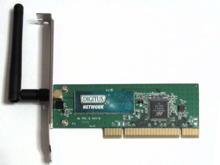Thursday, January 28, 2021
Data Center Technician Duties and Responsibilities
Wednesday, January 27, 2021
Security Analyst Job Description
Information security analysts design and implement security systems to protect a company or organization’s computer networks from cyber attacks, and help set and maintain security standards.
Monitor computer networks for security issues.
Investigate security breaches and other cyber security incidents.
Install security measures and operate software to protect systems and information infrastructure, including firewalls and data encryption programs.
Document security breaches and assess the damage they cause.
Work with security team to perform tests and uncover network vulnerabilities.
Fix detected vulnerabilities to maintain a high-security standard.
Stay current on IT security trends and news.
Develop company-wide best practices for IT security.
Perform penetration testing.
Help colleagues install security software and understand information security management.
Research security enhancements and make recommendations to management.
Stay up-to-date on information technology trends and security standards.
Information Security Analyst Requirements:
Bachelor's degree in computer science or related field.
MBA in information systems.
Experience in information security or related field.
Experience with computer network penetration testing and techniques.
Understanding of firewalls, proxies, SIEM, antivirus, and IDPS concepts.
Ability to identify and mitigate network vulnerabilities and explain how to avoid them.
Understanding of patch management with the ability to deploy patches in a timely manner while understanding business impact.
Thursday, January 21, 2021
Do I have to declare freelance income?
Always check your contract
What expenses can you claim as a sole trader?
Declaring income earnt from freelancing to HMRC
What Income Tax are you required to pay as a freelancer?
- Basic rate (20%) tax is due on income up to £37,500
- Higher rate (40%) is due on income from £37,501-£150,000
- Additional rate (45%) is due on income over £150,000
How much National Insurance should you pay as a freelancer?
Monday, January 18, 2021
Freelance Jobs You Can Work From Home
When most people think of freelancers, they think of creative jobs: writing, editing, perhaps advertising and marketing gigs. While those areas are full of opportunities for entrepreneurial types who want to work at home, either on a full-time or part-time basis, they're far from the only occupations that lend themselves to the freelance life. Here's a roundup of several freelance jobs -- some you'd never expect.
Writing
Editing and Proofreading
Marketing and PR
Transcription
Thursday, January 14, 2021
Noc It Meaning
NOC engineers A NOC It engineer has several duties in order to ensure the smooth running of the network. They deal with things such as DDoS Attacks, power outages, network failures, and routing black-holes. There are of course the basic roles, such as remote hands, support, configuration of hardware (such as firewalls and routers, purchased by a client). NOC engineers also have to ensure the core network is stable. This can be done by configuring hardware in a way that makes the network more secure, but still has optimal performance. NOC engineers are also responsible for monitoring activity, such as network usage, temperatures etc. They would also have to install equipment, such as KVMs, rack installation, IP-PDU setup, running cabling. The majority of NOC engineers are also on call and have a 5-6 day rotation, working different shifts.
Sunday, January 10, 2021
what is wireless lan ?
A wireless LAN (WLAN) is a wireless computer network that links two or more devices using wireless communication to form a local area network (LAN) within a limited area such as a home, school, computer laboratory, campus, or office building. This gives users the ability to move around within the area and remain connected to the network. Through a gateway, a WLAN can also provide a connection to the wider Internet.
Saturday, January 9, 2021
IT education and job functions
information technology specialist
Tuesday, January 5, 2021
Skills needed to be a systems engineer
Core Skills Required to be a Systems Engineer
Problem Solving:
juniper networks careers freshers
juniper networks careers freshers Network Engineering Description A network engineer is a technology professional who is highly skilled in ...
-
juniper networks careers freshers Network Engineering Description A network engineer is a technology professional who is highly skilled in ...
-
A contingency plan is a course of action designed to help an organization respond effectively to a significant future event or situation t...
-
juniper networks jobs Juniper Networks, Inc. is an American multinational corporation headquartered in Sunnyvale, California . The ...
